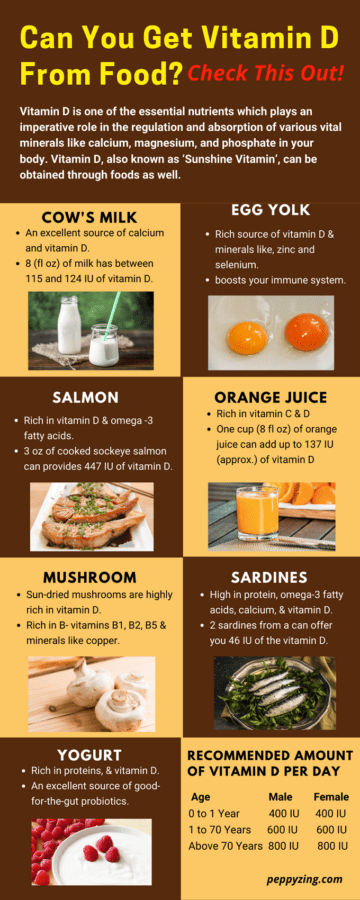
Do you often feel tired and energy-drained, or have a general sense of not feeling well? Do you often feel difficulty in climbing up the stairs or getting up from the floor? If yes, then chances are there that you might be suffering from the deficiency of Vitamin D. While you can get the “Sunshine Vitamin” from direct exposure to the sun, there are certain food sources of vitamin D as well.
According to the NIH, you should get sun exposure for 5 – 30 minutes between 10 am and 3 pm twice a week to the face, arms, legs, or back. It is usually enough to help boost vitamin D. However, if you have vitamin D deficiency, apart from sunlight, you can obtain it from vitamin D rich foods as well. Let’s checkout what are they!
Table of contents
- What is vitamin D good for
- Why is vitamin D important for your body
- Causes of vitamin D deficiency
- Symptoms of vitamin D deficiency
- Who is at risk for vitamin D deficiency
- How much is the recommended vitamin d intake
- What are the food sources of vitamin D
- Sources of vitamin D for vegans
- Sources of vitamin D for vegetarians
- Does fortified foods with vitamin D helps
- Do I need vitamin D supplements
What is vitamin D good for?
Vitamin D is one of the essential nutrients which plays an imperative role in the regulation and absorption of various vital minerals like calcium, magnesium, and phosphate in your body.
Vitamin D is also known as ‘Sunshine Vitamin’ because your body can make and absorb vitamin D from sun exposure.
Your body needs vitamin D to help absorb calcium.
Calcium and vitamin D are essential nutrients that help in building strong bones when you’re young and to keeping them strong and healthy as you age.
Vitamin D plays an important role in protecting your bones, both by helping your body absorb calcium and by supporting muscles needed to avoid falls.
Food sources of vitamin D
Share this Image On Your Site
Why is Vitamin D important for your body?
Vitamin D is known to have potent effects on your body.
- Vitamin D helps in the absorption of Calcium and thus facilitates the growth and development of your bones and teeth.
- Lack of vitamin D in your body could lead to soft and brittle bones, constant joint or back pain, muscle pain, etc.
- In some cases, if you are vitamin D deficient, it may increase the risk of conditions like osteoporosis, rickets, and arthritis.
- Vitamin D is most crucial for boosting your immune system.
- It improves your resistance against various lifestyle diseases like diabetes.
Causes of vitamin D deficiency
As you know, the richest source of Vitamin D is sunlight and gets naturally synthesized in your body. So, if you are living in a country that is gifted with abundant sunlight, you must be getting enough Vitamin D to stay healthy. Isn’t it?
Well, not necessarily. It’s very shocking to find that a huge population, despite abundant sunlight is still suffering from Vitamin D deficiency.
Similarly, if you live in a country with extremely cold temperatures, the climatic conditions may not allow much absorption of sunlight. Chances are there that you might be suffering from a deficiency of vitamin D.
It is because you might not be getting enough ultraviolet B (UVB) rays, which trigger the skin to produce vitamin D in your body.
There could be many other reasons for the deficiency like:
- If you are bound to your indoor jobs, then you might not be getting much exposure to sunlight.
- If you are not taking foods rich in Vitamin D
- As you get older and your kidneys become weaker. Consequently, they may not be able to convert enough vitamin D into the active form that your body can use.
- Your age and weight also play a factor in deficiency. Obesity can lead to deficiency as the nutrient is leached out of the blood by your body fat.
What Are The Symptoms of deficiency
- You feel constant joint pain or muscle pain.
- If you are losing too much hair, then it can also be associated with vitamin D deficiency.
- According to various health experts, prolonged digestive issues are also associated with vitamin D deficiency.
- You often feel tired and energy-drained.
- If you lack vitamin D in your body, then you may face depression symptoms.
- If your wounds take a lot of time to heal, then chances are that you might be suffering from vitamin D deficiency.
Who is at risk of vitamin D deficiency?
- If you get limited sun exposure.
- If you are obese or have had gastric bypass surgery.
- Those with dark skin.
- If you are an older adult.
- Infants who are exclusively breastfed without vitamin D supplementation.
- If you are suffering from certain digestive diseases that result in malabsorption. Ayurvedic herbs and spices can also contribute a lot in treating digestive disorders.
How much is the recommended Vitamin D intake
Recommended Amount Of Vitamin D per day
Age Male Female
0 to 1 Year 400 IU 400 IU
1 to 70 Years 600 IU 600 IU
Above 70 Years 800 IU 800 IU
What are the food sources of vitamin D
While you can get vitamin D from sunlight, certain foods are rich in vitamin D. Here’s a list of best food sources of Vitamin D that you can add to your diet:
1. Orange Juice
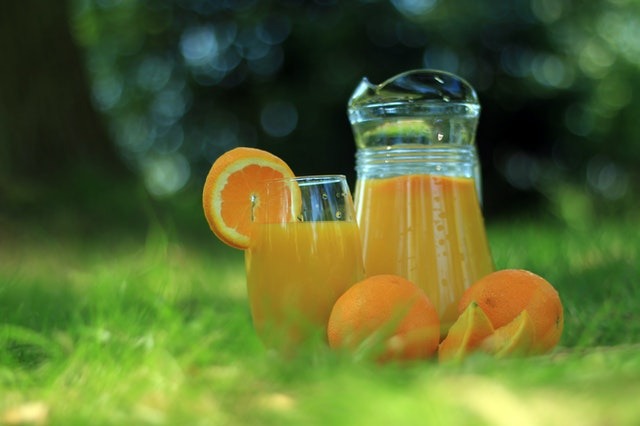
Juices are always considered healthy, as they are packed with rich nutrients. Orange juice is an important source that contains a good amount of vitamin D and vitamin C.
- Include a glass of fresh orange juice in your breakfast as the best way to kick-start your morning.
- Always prefer fresh orange juice over store-bought orange juices.
- Also, do not throw away the orange peel, as it is one of the most effective home remedies for dandruff.
Nutritional Value: One cup (8 fl oz) of orange juice can add up to 137 IU (approx.) of vitamin D to your daily total recommended quantity.
2. Salmon
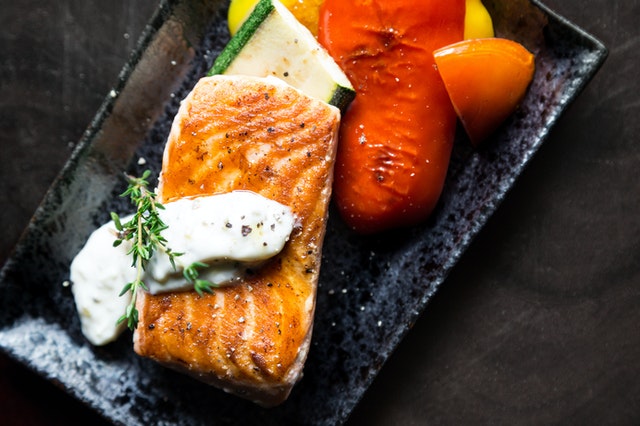
Not only is salmon a great source of healthy protein to add to your diet but it is also rich in vitamin D and omega -3 fatty acids.
- Omega-3s help keep your immune, pulmonary, endocrine, and cardiovascular systems healthy.
- Salmon can be a great addition to your diet because of its high nutritional content.
Nutritional Value: 3 oz of cooked sockeye salmon can provide you about 447 IU (approx.) of vitamin D.
3. Tuna

One of the richest food sources of vitamin D is Tuna. Tuna makes a great option for you to enjoy in your meal, as it is easily accessible and affordable.
Classic tuna sandwich or tuna salad is an easy option for your lunch.
Nutritional Value: 3 oz of canned tuna in water contains 154 IU (approx.) of vitamin D.
4. Sardines
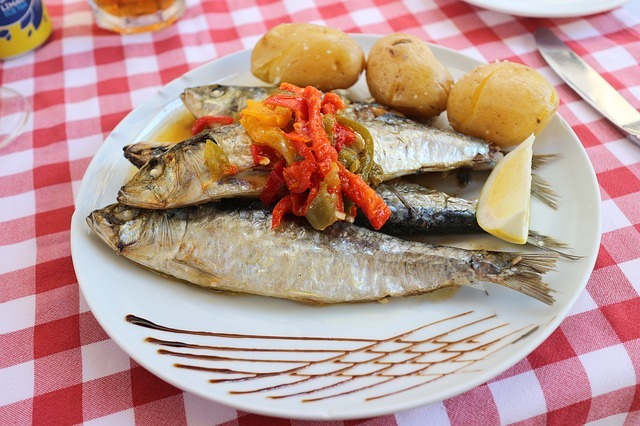
Sardines are high in protein, heart-healthy omega-3 fatty acids, calcium, and vitamin D. It works well as salad toppings, as well as in pasta sauces and stews.
- Include more fish like herring, mackerel, salmon, and tuna in your diet as they are excellent sources of vitamin D.
- Other than providing vitamin D, these are also rich in nutrients like calcium, protein, and phosphorus.
Nutritional Value: Two sardines from a can offer you 46 IU (approx.) of the vitamin D, or 12 percent of your daily value, according to the NIH.
5. Egg Yolk
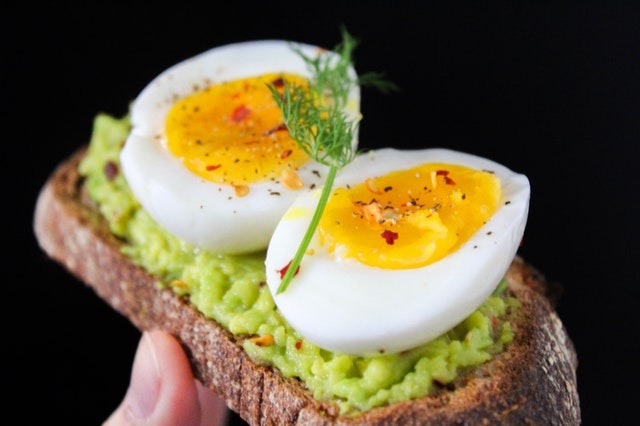
One of the food sources of vitamin D that is rich in minerals like, zinc and selenium too, is egg.
- It plays a significant role in boosting your immune system. Though yolk may come with extra calories and fat it also contains all the essential nutrients, including protein and good carbs.
- Make sure you do not eat more than one egg’s yolk in a day.
Nutritional Value: One egg yolk has 41 IU, 10 percent of your daily value, per the NIH
6. Yogurt
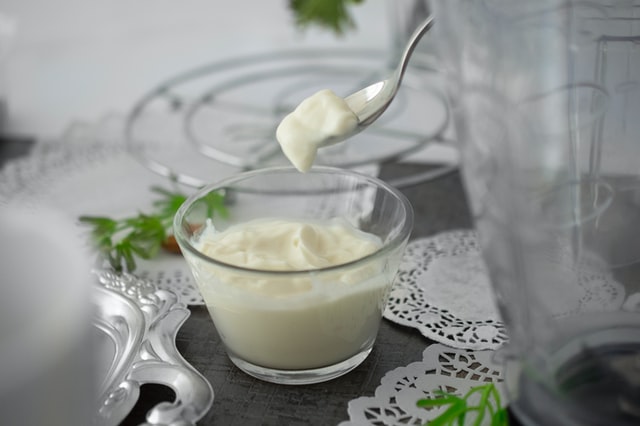
Rich in proteins, yogurts are also fortified with vitamin D.
- Yogurt is such a convenient food that you can consume it plain or with fresh fruit, or with chopped vegetable salad. Either way, it is healthy as well as tasty option.
- This type of dairy is an excellent source of good-for-the-gut probiotics.
However, make sure you read the label before buying it, as most of these fortified versions of yogurt are flavored, where sugar content may be very high.
It is better you prepare yogurt at home rather than eat store-bought ones.
Nutritional Value: 8-ounce serving can provide you around 5 IU (approx.) of vitamin D.
7. Cow's Milk

- Various health experts suggest that in addition to being an excellent source of calcium, including one glass of cow milk in your daily diet, will give 20% of your daily requirement of vitamin D.
- Enjoy a glass of cold milk straight up, blend it into a smoothie, or use it in your tea or coffee drink.
Nutritional Value: 8 (fl oz) of milk has between 115 and 124 IU of vitamin D.
8. Soy milk
Vitamin D is found almost exclusively in animal products. So, if you are a vegetarian or vegan, then you are at a particularly high risk of not getting enough.
- For this reason, plant-based milk, such as soy and almond, are often fortified with nutrients, minerals, and vitamins.
- It can provide you similar amounts of vitamin D, as found in cow’s milk.
Nutritional Value: One cup (237 ml) of soy milk can provide you 107–117 IU (approx.) of vitamin D.
9. Mushrooms
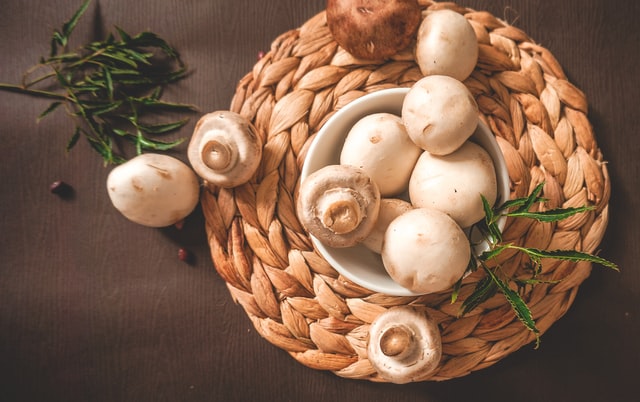
- Since mushrooms grow in sunlight, they are extremely rich in vitamin D. But the amount of vitamin D varies according to the type and variety of mushrooms.
- Other than that, mushrooms are rich in B- vitamins B1, B2, B5 and minerals like copper, too.
Always try to buy sun-dried mushrooms. If you are unable to find one for you, you can also expose them to the sun to increase their vitamin D content.
Nutritional Value: A serving has between 124 and 1,022 IU (approx.) of vitamin D, per 100 grams (g).
10. Oatmeal
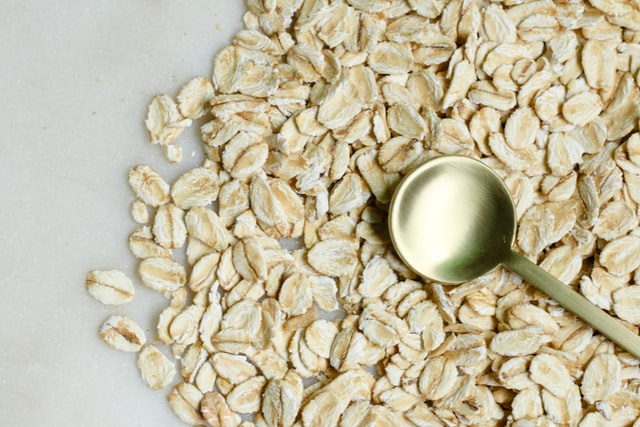
Cereal can be a solid base for a nutrient-rich, high-fiber meal as it can add a solid dose of vitamin D to your diet.
- Just like most of the whole grains, oatmeal is also an excellent source of vitamin D.
- Other than that, oats are loaded with essential minerals, vitamins, and complex carbs, which are required by your body to stay healthy and in shape.
Oatmeal can taste even better if you add fortified low-fat milk to your bowl. You can also make a breakfast cookie that includes fortified oatmeal with vitamin D.
Nutritional Value: Fortified cereal typically gives you 40 IU (approx.) of vitamin D per serving.
Sources of Vitamin D for vegetarians and vegans
If you are a strict vegetarian or follow a strict vegan diet or have dairy allergies, then you are more likely to be Vitamin D deficient. Your diet does not include foods like fish, egg, and milk which are an excellent source of naturally occurring or added vitamin D.
Vitamin D foods for vegans
- Mushrooms
- Soy milk, original, fortified with vitamin D
- Almond milk, original, fortified with vitamin D
- Orange juice, fortified with vitamin D
- Soy yogurt, fortified with vitamin D
- Ready-to-eat cereal, fortified with vitamin D
Vitamin D foods for vegetarians
- Milk, low-fat, fortified with vitamin D
- Yogurt, fortified with vitamin D
- Orange juice
- Soy products
- Eggs
- Cheese
Does “Fortified Foods with vitamin D” helps?
Fortified foods are those foods in which some nutrients are added to them that do not occur naturally in the food. These foods are meant to improve nutrition by boosting your vitamin and mineral intake.
Vitamin D fortified foods are mainly used in areas where you do not get sufficient sunlight as a source of vitamin D.
- For instance, food staples like rice and flour are fortified with vital nutrients like iron, fiber, zinc or vitamins.
- Most milk is fortified with vitamin D and orange juice with calcium.
- Foods found in nature are good sources of vitamin D, like cow’s milk. But most plant alternative milk is typically fortified with vitamin D.
- Many types of yogurt and cereal are also vitamin D fortified foods but may contain excessive added sugar or saturated fat which you avoid.
Some more fortified foods with vitamin D include:
- Dairy products and soy milk,
- Orange juice,
- Cereals
- Beef liver
- Cheese
- Egg yolks
Do I need Supplements?
If you are not getting enough vitamin D from exposure to sunlight, try adding more food sources for Vitamin D to your diet.
If you find it hard to get enough from food too, you can consider taking a supplement to help meet your needs.
Before adding a vitamin D supplement, talk to your health care provider if you have any questions about the dosage of the supplement.
Also, check to see if any of the other supplements or multivitamins you take contain vitamin D. Many calcium supplements also contain vitamin D.
Krishna is a Management graduate in Human Resource. She is an avid reader, knowledge seeker, and an adoring mother of two lovely kids.
